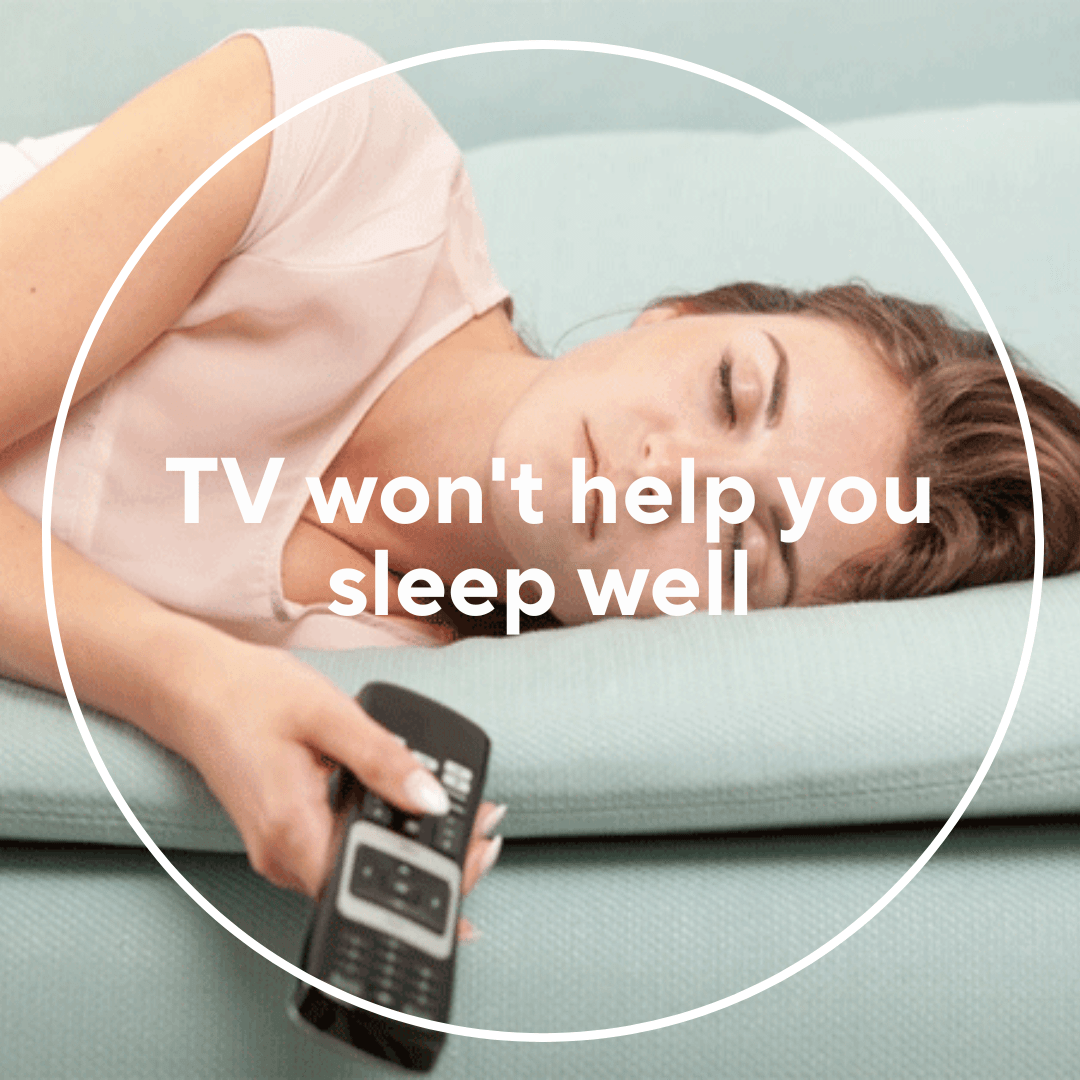Getting a good night’s sleep is one of the most important things we can do for our physical and mental well-being. Getting enough sleep, and getting enough restful sleep, will reduce stress and the risk of developing health problems. And it will help us to improve our well-being, think more clearly and make better decisions.
Why can’t I sleep well?
There are many people who claim that sleeping with the TV on helps them fall asleep, but experts generally agree that this is not a good idea. That’s because even if you feel that it helps you fall asleep, the quality of your sleep will be affected and you will not get a good night’s sleep. In fact, there are many studies on how cell phones, computers and televisions affect our sleep, stress levels and general health.
There is still a lot of research to be done in this area, but the general consensus is that, as far as possible, we should avoid using these types of technologies at bedtime. Sleeping with the TV on can have important consequences on our health, diminish the quality of your sleep and alter our hormonal functioning:
- Fewer hours of sleep: when you go to bed with the TV on you may actually be getting less sleep than you think, as it is easy to stay awake waiting for one more video or episode to finish. Experts recommend sleeping an average of 8 hours a day to get a restful night’s sleep, and using the TV or other devices at bedtime often ends up causing you to sleep less than recommended and increases your accumulated sleep.
- Decreased melatonin production: Melatonin is the hormone that helps us sleep and tells your body when it is time to recover from the day. TV and other devices that generate blue light can reduce the amount of melatonin your body generates. It can produce or aggravate insomnia problems and make you unable to sleep well.
- Interferes with sleep quality: Sleeping while watching or listening to TV brings a lot of stimulation to your brain from things like flashes, lights, changes in sound intensity, etc. A stimulated brain can cause the sleep you get to be superficial or even cause you to have nightmares and therefore not get adequate rest.
Tips so that the TV does not ruin your sleep
Using the TV as a sleep aid may not be the best way to promote good sleep hygiene. But if you have to choose between total sleep deprivation or sleeping with the TV on. Here are some tips to minimize its negative effects so you can get a good night’s sleep:
Use the TV as a source of white noise. White noise has been shown to be effective as a sleep aid. If you use the TV or other devices, you can choose to put on programs that do not speak, lower the volume or use a language you do not understand. This will allow your brain not to be attentive to the dialogues.
Opt for the TV rather than the mobile or tablet because the blue light of the latter is less intense. On the other hand, you can activate the blue light filter of the device you are using. And also choose to place it as far away from your face as possible.
Use familiar sounds. Some studies show that listening to music while you sleep reduces insomnia and promotes healthy sleep, so some researchers believe that listening to familiar soothing sounds, even if they come from the TV, could have the same effect. Along these lines, it’s possible that using relaxing music or low-action series and movies that you’ve already watched several times may help you get a good night’s sleep.
Don’t become dependent. Reinforcing the association between TV and sleep can make it difficult to sleep without it, especially in situations where you don’t have access to a TV. For this reason, it’s important to have a variety of alternatives when you need help sleeping so you don’t have to rely on one habit. A good strategy is to start cutting back on TV and introduce new bedtime habits such as reading, meditating or writing a few lines in your journal.
Remember, a good night’s sleep is synonymous with physical and mental well-being. If you have insomnia problems and you don’t know why, we recommend you to take a genetic test to find out if the origin of the problem is in your genetics. Here are the benefits of a genetic test.
Referencias:
Harmat, L., Takács, J., & Bódizs, R. (2008). La música mejora la calidad del sueño en los estudiantes. Journal of advanced nursing, 62(3), 327-335. https://doi.org/10.1111/j.1365-2648.2008.04602.x
Rahman, S. A., Shapiro, C. M., Wang, F., Ainlay, H., Kazmi, S., Brown, T. J., & Casper, R. F. (2013). Efectos del filtrado de las longitudes de onda cortas visuales durante el trabajo nocturno por turnos en el sueño y el rendimiento. Chronobiology international, 30(8), 951-962. https://doi.org/10.3109/07420528.2013.789894



